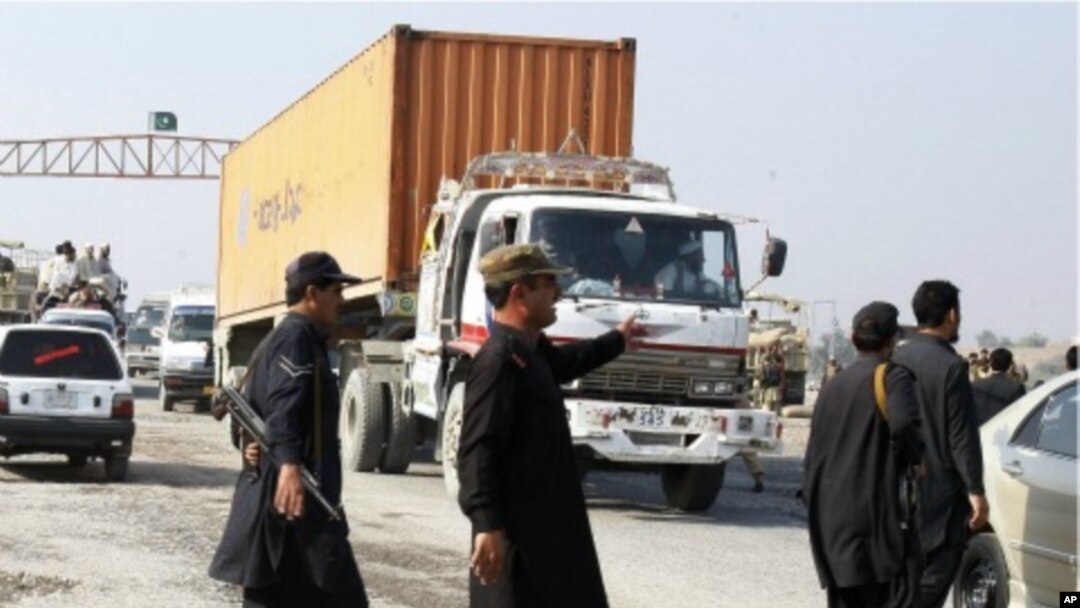The deeply strained relationship between Pakistan and the United States appears to have taken yet another turn for the worse, in the aftermath of what Pakistan describes as an unprovoked pre-dawn attack on its forces by NATO aircraft across the Afghan border. At least 26 Pakistani military personnel, including two officers, were killed, and 14 others were wounded. Islamabad is strongly protesting the incident.
Pakistan has blocked NATO's supply routes that pass through its territory to Afghanistan, following what officials here describe as an aerial attack on its soldiers in the early hours of Saturday morning local time.
The Pakistani military says NATO helicopters and fighter jets "carried out unprovoked firing" on two of its posts in the Mohmand tribal district bordering Afghanistan. A military statement calls for "strong and urgent action" against thoseresponsible "for this aggression."
Washington's ambassador to Pakistan, Cameron Munter was summoned to the Foreign Ministry in Islamabad to explain the incident. Munter says Washington regrets the loss of life among "any Pakistani servicemen," and promised to work closely with Pakistan to find out what happened.
Prime Minister Yousef Raza Gilani has strongly condemned the attack, and convened an emergency meeting of senior leaders to discuss next steps.
NATO says General John Allen, commander of the International Security Assistance Force in Afghanistan, is personally paying the "highest attention" to the matter. Brigadier General Carsten Jacobsen is a spokesman for the force.
"He's committed to thoroughly investigate and determine the facts. He expresses his sincere and heartfelt personal condolences to the families and loved ones of any member of the Pakistan security forces who may have been killed or injured."
The NATO force says it remains committed to improving security relations with Pakistan, including coordinating cooperation along the Afghan-Pakistan border.
That border is extremely mountainous, winding, and porous to foot traffic back and forth - posing a constant challenge for military planners on both sides. The Taliban and other militants take advantage of the nearly 2,400-kilometer-long border to carry out attacks on U.S. and NATO forces.
A similar incident happened about a year ago when international security forces accidentally killed two Pakistani soldiers. Then, too, Pakistan temporarily choked off the route on which NATO forces have depended for supplies since they began military operations against al-Qaida and the Taliban in Afghanistan following the September 11, 2001 terror attacks.
The timing of this incident may further sour the attitude of Pakistanis who already feel irritated over what they perceive as infractions against their sovereignty. In May, U.S. Special Forces.swept into the Pakistani garrison town of Abbotabad, not far from the capital, to kill al-Qaida leader Osama bin Laden.
Years of unmanned U.S. drone airstrikes against Pakistan-based targets have killed both militants and civilians.


